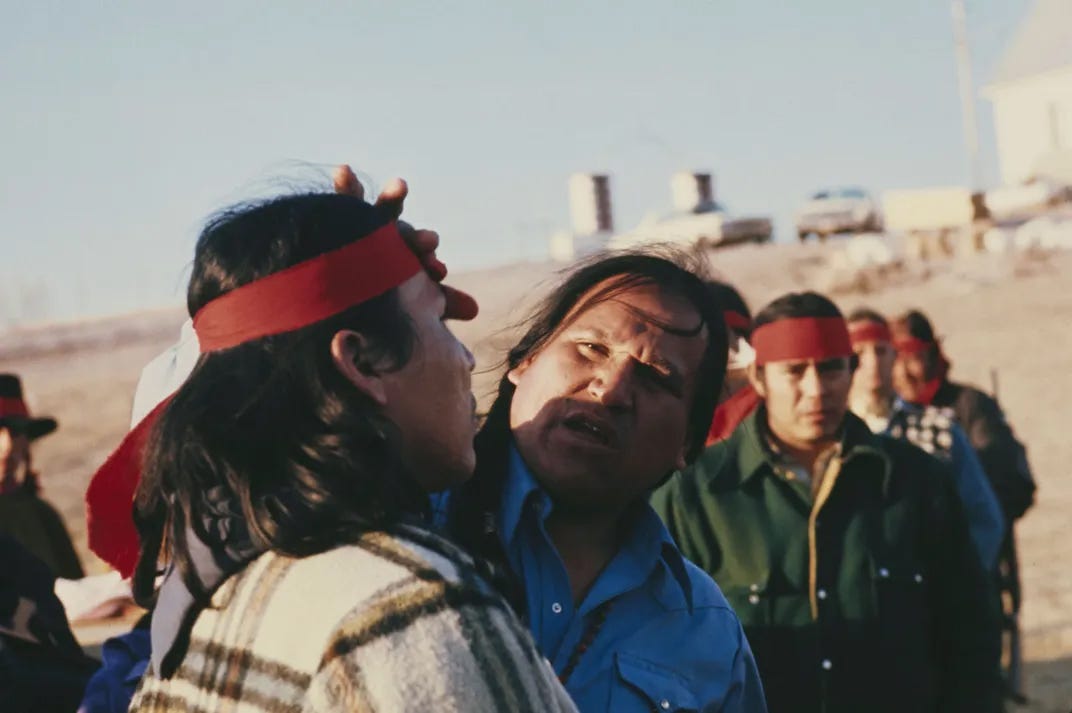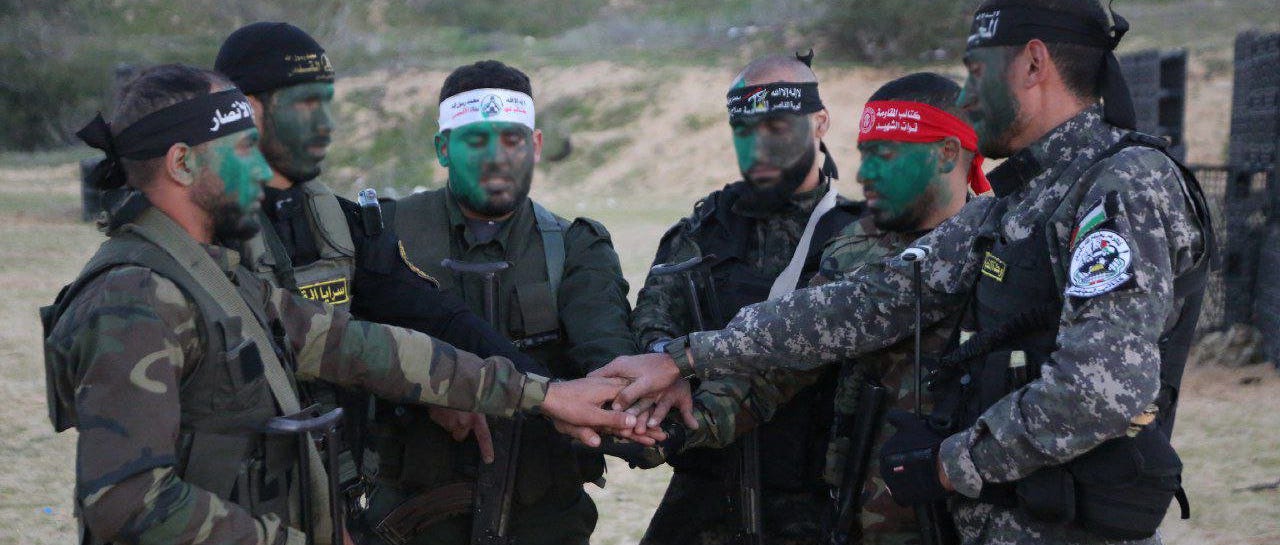“Where Would We Go?”: Contradictions in the Popular Support for Palestine and Lessons for Settlers
An observation and analysis of settler attitudes on Turtle Island, using popular support for Palestine as a case study

Since October 7, there has been no shortage of statistics about how an overwhelming majority of Israeli settlers are bloodthirsty colonialists who, when polled, are happy with the level of violence their government is raining down on the people in Gaza. The ones who are unhappy want more. A survey from the Tel Aviv University Peace Index showed that over half of Israeli Jews believed the IDF was not using enough force in Gaza, while over a third reported that they believed the IDF was using an appropriate amount of firepower. On the other hand, any sympathy for Palestinians is interpreted as support for “terror,” and Israelis face imprisonment for even posting a dissenting opinion on social media. It’s hard to say if these peace polls mainly have access to certain Israelis, or if Israelis must self-censor for fear of jail time. People in the west may stumble upon the occasional video of peace movements where a minority of Israelis express support for Palestinians, sometimes putting up the flag. There are also countless references to the popular disdain for Netanyahu.
Anti-Zionist Jews who invoke an Israeli “left,” or highlight the dissent of some Israelis, are not willing to be callous about Israeli civilian death because of whatever ties or affinity they may have. This reveals a flaw in their analysis because they are inclined to lionize dissenters as heroes and never make demands beyond ceasefire. Most will agree that Israel’s very existence is colonial, but the Israeli peace movements that get the spotlight want only an immediate return to a colonial status quo, or something softer. While draconian laws might make it difficult for an organization to be explicitly decolonial, among these so-called left-wing mobilizations, no relevant Israeli organization has come forward with support for the dissolution of the state of Israel. Many Palestine supporters rightly identify the invocation of this Israeli “left” as a type of liberalism: the tendency to sympathize for Palestinians’ plight, but ultimately normalize the occupation and uphold the legitimacy of Israeli statehood. But once an anti-Zionist insists upon the existence of “good Israelis,” they give themself permission to justify their feelings of empathy and ambivalence toward Israeli civilians who end up being collateral damage.
Then there are western supporters of Palestine. Many of them have done their reading, they have seen the horrific footage and became radicalized by it, they know about the Nakba, the white phosphorus, the Great March of Return. They correctly identify Israel as a colonial occupier, and invoke the human right to armed resistance. When the conversation turns to the danger faced by Israeli civilians, they righteously turn the attention back to the people of Gaza who are suffering the most, and dismiss concerns for Israelis. Some might even maintain that Israelis’ thirst for murder cannot be quenched. They share facts about Israel stealing the organs of dead Palestinians, or pedophiles who take cover under Israel’s protection. While those who invoke the efforts of progressive Israelis seek to defend civilians from the rockets that fire into Tel Aviv, those who invoke the monstrousness of Israelis do so to justify them as viable targets.
It is here that callousness reveals some cognitive dissonance. Those who have no relationship or affinity toward Israelis can afford to be callous toward settlers, when it's obvious their attitudes would be more attached and empathetic should armed decolonial struggle happen in the homeland they presently occupy. When it comes to North America, most settler attitudes are akin to a soft Zionism. Those attitudes are easily revealed, but many of us do not seek to understand our own settlerhood, or our material and relational ties to other settlers. If tensions were to escalate, many western settlers—including those who think of themselves as leftists—would have no problem being as bloodthirsty and cruel as the next Israeli. If we're not ready to confront this, we’ll never adequately understand colonization or decolonization. Right now, we're making ourselves out to be the good guys because it's Israel and not us. This makes our righteousness empty and performative, and guarantees the crumbling of our movements under the slightest pressure. Someone’s position on Palestine and Israel today, no matter how correct, doesn't necessarily indicate their position on decolonization in general. There's a contradiction there, and maybe within this contradiction there's a lesson for settlers.
When people ask, "Where will the Israelis go?" if the decolonial struggle is won, I hear a subtextual question that only Zionists ask out loud: "If Indigenous people stormed my house and made me leave, where would I go?" When western settlers think about the same events taking place in their homeland, the contradictions of our own colonial conditions come to the fore. Settlers have faces and names and family histories. Settlers are in our communities, are our family members. And many of them won't even pay lip service to the idea of decolonization. Confronting this reality might result in a wavering of a western settler’s commitment to the Palestinian cause, or maybe it causes a settler to argue that the US, Canada, or Mexico is an exception. Decolonization doesn’t apply to us, at least not the same way. Our country is “older” than Israel, and our colonization has “run its course.” This, too, is liberalism: a mythology designed to maintain the legitimacy of this nation.

Contrary to the much exercised mental gymnastics of settlers, Indigenous people know that their land is still under occupation. Indigeneity is not about language, who was there first, or ties to the land, but rather it is a political position within the context of settler colonialism. If Israel had never settled, to be Palestinian today would not be controversial. If Israel had never settled, the world would respect the sovereignty of Palestine. Palestinians would be referred to by name, instead of being called “Arabs” or “Gazans.” If Israel had never settled, there would not be this genocide. Here in the US, we have just passed the anniversary of the Wounded Knee Massacre, which took place not even 60 years before the violent dispossession of the Palestinian people in 1948. The US has its own series of Nakbas from which Indigenous people are still suffering, and settlers are benefiting.
While there may not be a current path to armed resistance for Indigenous people on Turtle Island, if one should ever emerge, I'd support it for the same reason that I support Palestinian decolonial resistance. After all, we are on stolen land. What's the point of acknowledging it if we're not prepared to give it back? If a successful decolonial movement were to take place on this land, there would obviously have to be a reshuffling. Real estate developers wouldn’t be able to develop, enterprises would not have a say on whether and where to drill, economies based on extraction will no longer have what they need to keep themselves solvent, and no single person would be able to lord over massive acreage. There would be many changes from which settlers would cease to economically benefit, and all of this might even feel like an attack. But we're not lacking in land to live on, and we're not lacking in resources and labor to negotiate in a non-extractive way. On Turtle Island, Land Back is already happening in piecemeal, and all it does is begin a process of restoration. Nothing about the return of land has resulted in anything that endangers settlers. However, being afraid of Land Back and struggling against a decolonial future is what ultimately turns you into a violent settler, and it will bring violence into your life.
Thinking about this simple truth helps clear the fog, to the point that I can do away with the narratives about good or bad settlers. I don't need a record of the good deeds of a minority of Israelis in order to feel empathetic to civilians caught in the crossfire. I don't need to think about the majority of reactionary settlers in order to justify any resistance. People shouldn't have to share my ideology in order to not suffer. Indigenous people have a right to their land. That’s it. In the midst of the struggle against settler colonialism, discussing either Palestinians or Israelis as angels or devils not only obscures that fact, but it also creates a moral standard filled with contradictions that we won't be able to negotiate if the same events in Palestine happened here.
Here are lessons to draw upon, for the sake of holding onto clarity and understanding the source of our decolonial convictions:
Lesson 1: In the course of decolonial struggle, civilian settlers—parents, grandparents, children, etc.—should not have to suffer, but for as long as settlers struggle against decolonization, they WILL. Your justification for any feelings of empathy toward them is irrelevant to this fact. But moreover, your empathy needs no justification. You are allowed to feel however you feel. You’re free to grieve whomever you want.
Lesson 2: If decolonization were to happen on this continent through more intensive means, we must not be afraid of it happening. Rather, we should be afraid of what happens if we DON'T allow it to happen. That's what we're seeing with Israel today.
Our struggles are intertwined, yes, but so is the relationship of our oppressors. While North America may not precisely resemble Israel, the similarities cannot be overlooked. As a nation of occupiers, we need to have an analysis that can be applied here. If we are for decolonization in Palestine, then we must be for decolonization on Turtle Island. If we condemn settlers in Israel, then when decolonial resistance comes to our country, we cannot chain ourselves to the land. If we understand the means by which Palestinian resistance must take, then we should understand that any start of a decolonial insurrection on this land is the result of ongoing occupation and violence.
It would be useless to try to predict events that take place ten, fifty, or a hundred years from now. But the United States’ global position is plummeting, its influence is weakening, it can no longer wield the power that it used to. We are a highly propagandized population, and the west’s downfall will fundamentally change things for people. Civilian populations in North America are still holding onto illusions that we don’t even know we’re holding onto. While many of these illusions have been shattered by bearing witness to the bloodshed in Gaza, there are still more that can only be revealed through engaging with movements here. So one thing that we can do for our own decolonial movements is better understand our material and relational ties to settlerhood and colonial violence. We can root out liberalism in our interactions, relationships, and organizing, and oppose it the best we can. Ask ourselves: What might we do differently than Israel and Israelis? How must we prepare to collectively make those choices? We can heighten the contradictions and move through them rather than deny their existence, allow ourselves to feel whatever ambivalence and grief that we must feel, and ultimately choose once again to commit to a decolonized future.



